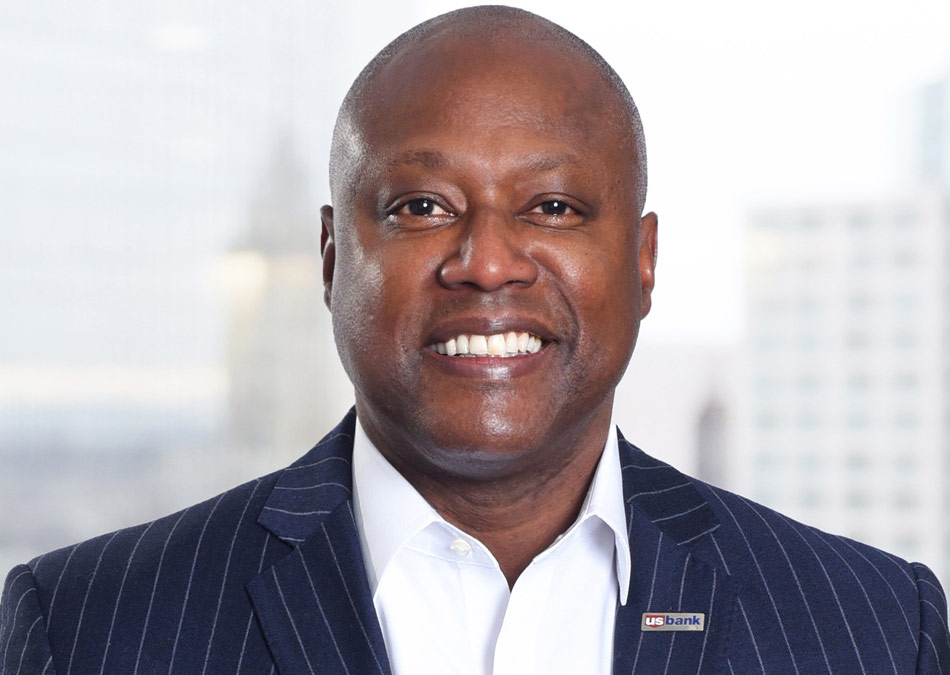BYLINE
Tackling tough conversations about money with your family
September 26, 2024
By Scott Ford, president, U.S. Bank Wealth Management

As the father of three children, I know firsthand how hard it can be to speak with them about money – living within your means, saving and investing, and more. Even as an adult, it can be a challenge to talk about finances with my own parents. The truth is, many people find that discussing money with family and friends is extremely uncomfortable.
That’s why U.S. Bank conducted the Challenging Conversations About Money survey to dig in and see how people from different generations felt about a wide variety of sensitive financial topics – asking family members for money, talking about debt, savings, inheritance and much more.
While the survey revealed that many families and couples are talking about financial concepts around the dinner table, most do not feel comfortable talking about their own financial situations – possibly because they are worried about being judged or feel embarrassed.
We surveyed 2,500 individuals to gauge their thoughts on intergenerational conversations about sensitive topics. While we work with individuals, couples and families every single day, the findings were still fascinating to me, even after 25 years in this industry. We hope these findings will inspire more families to engage in the tough conversations that can be critical to building wealth.
Here’s a closer look at what we found.
- Parents worry their kids will be financially dependent on them in adulthood. Our study found that nearly 1 in 4 parents of all generations worry their children will be financially dependent on them well into adulthood; this number jumps to more than half for Gen X parents.
- Americans would rather discuss who they’re voting for than their finances. As we approach the 2024 presidential election, we found that parents would still rather talk to their kids about their choice of candidate (76%), than their finances (63%).
- Today’s parents are having more in-depth financial conversations with their children. Times are changing, and our survey found that today’s parents are almost twice as likely to regularly discuss financial topics such as investing in stocks and bonds (44%) with their kids than their parents were with them (24%). In addition, parents are also more likely to say they’ve had conversations with their children about how to choose a career path that aligns with their child’s financial goals – a discussion they may not have had growing up. Sixty-five percent of parents discussed this concept with their children when they were growing up, while only 41% of Americans recall discussing this concept with their parents when they were growing up.
- Some people have lied to their partner about money. Americans often don't see eye to eye with their partner on handling their finances and might not be truthful about money – propelled by feelings of shame and embarrassment. More than a third of Americans do not agree with their partner on how to best manage their money, almost two-thirds (60%) of Americans think they make better financial decisions than their partner, and a third of Americans say they have lied to their partner about money (30%).
- Financial advisors are the new therapists. Financial advisors are helping families talk about money openly and honestly. In addition to providing practical investment advice, financial advisors are helping to bridge gaps in conversation among mass affluent1 families. This is especially true for younger affluent Americans: 8 in 10 say their financial advisor has helped their family with uncomfortable conversations about money (82% mass affluent and high net worth2 Gen Z & millennials).
Conclusion: Forging a better future for families
The survey revealed so much about how people are thinking and talking about money across generations. There’s a great deal we can gain from these learnings that we can use to have challenging conversations in our own lives to achieve our financial goals. If you relate to any of these findings, you are not alone. The good news is there are some effective methods for tackling these types of conversations with family members, at any life stage.
We recognize that it’s not always easy talking with family about money, but there are many benefits to having open, honest and transparent conversations. I, for one, am committed to doing so with my family.
Read the press release announcing the survey results and the full report.
1 Mass affluent individuals are defined as having at least $250,000 in investable assets, not including retirement accounts or the value of their primary home.
2 High net worth individuals are defined as having at least $1M not including retirement accounts or their primary home.
Tags:
Media center
Press contact information, latest news and more
Learn more
Company facts, history, leadership and more
Work for U.S. Bank
Explore job opportunities based on your skills and location
Investment products and services are:
Not a deposit • Not FDIC insured • May lose value • Not bank guaranteed • Not insured by any federal government agency

